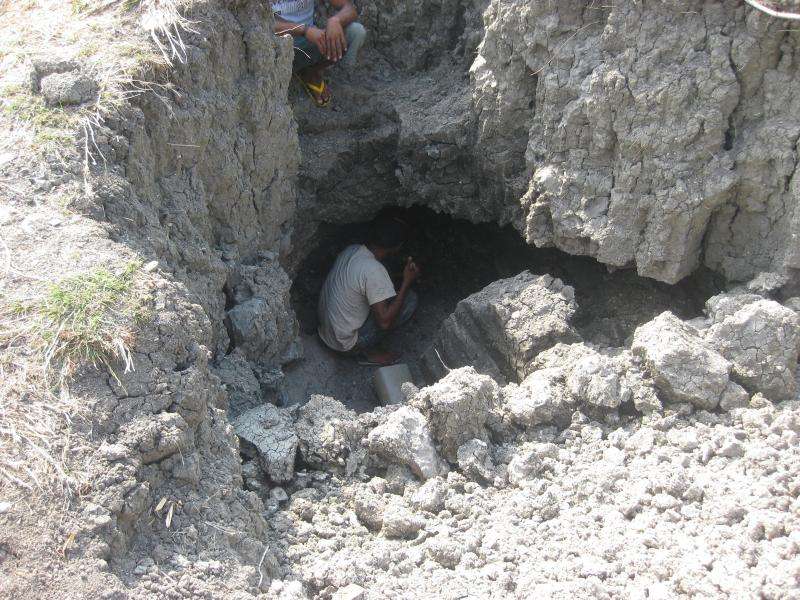Assessing the impacts of small-scale mining in eastern Indonesia

Australian researchers are working with Indonesian government agencies and universities to assess the impacts of artisanal and small-scale mining in eastern Indonesia.
Artisanal and small-scale mining (ASM) is typically done by unlicensed practitioners who have limited access to modern mining technology. Even though Indonesia is considered a middle-income country, ASM is still practiced across the archipelago. Villagers consider it a good way to generate cash income in the short term, however many of them do not realize its potential impacts on their health and environment.
A team of scientists from Charles Darwin University and the Australian National University are now conducting research to monitor the impacts of manganese and gold mining in East Nusa Tenggara (a large group of islands in south-eastern Indonesia) and in South-East Sulawesi (located just to the north of East Nusa Tenggara) respectively.
The project involves training local government officials to assess the social and environmental impacts of ASM in their region. In 2014, workshops were run – in collaboration with local universities – on the collection and analysis of ASM field data. In addition, a field trip was organised to Banten in western Java where a local NGO, Community Green Gold Mining, is implementing innovative solutions to reduce the impacts from mining. In the future, trained officials will collect data from mining sites and then use their local knowledge to develop solutions for their own region.
From an environmental perspective, it is known that ASM can lead to heavy metal contamination in rivers and coastal ecosystems, toxic health effects in miners who process gold and manganese ores, increased soil erosion and sedimentation, and reduced agricultural production. During this project, which will run until June 2016, Indonesian officials will be trained to use geographical information systems to map mining sites and measure contamination in local waterways.
From a social perspective, ASM gives poor people direct access to the mineral wealth of their land, providing diversified livelihoods and improving community resilience. However, ASM can also cause social upheaval, thereby increasing the chance of negative behaviours such as gambling, illegal alcohol sales or prostitution. To help minimise any negative impacts and maximise the benefits, Indonesian officials are expected to analyse the correlation of cash income generated from ASM activities with social problems.
Provided by Charles Darwin University
















